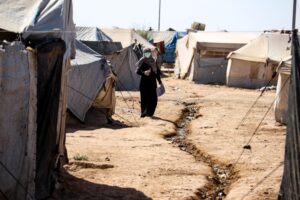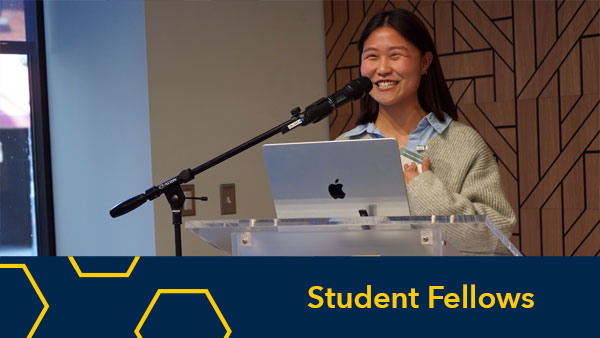Sean Corp, Content Strategist
 The formal end to the war in Afghanistan garnered headlines around the globe as more than 200,000 people were evacuated from Afghanistan including more than 124,000 of those by the United States.
The formal end to the war in Afghanistan garnered headlines around the globe as more than 200,000 people were evacuated from Afghanistan including more than 124,000 of those by the United States.
Many of those evacuated were Afghan citizens. This has spurred a discussion about the Afghanistan War and the U.S. withdrawal, and it has motivated people to ask how they can help the displaced population. A new Teach-Out from the University of Michigan explores the issues facing Afghan’s refugees including educational disruption, economic concerns, mental and physical health and how people in the U.S. and around the world can support these displaced people.
The “Afghan Refugees and Displaced People Teach-Out” is free to join and includes contributions from several of University of Michigan’s top experts on Afghanistan, education and economics engaging in a conversation on what brought us here, the challenges these people are facing, and what comes next.
Join the Conversation | Afghan Refugees and Displaced People Teach-Out
University of Michigan contributors to the Teach-Out include:
- Michelle Bellino, associate professor of education, discusses the impact of displacement on youth.
- Juan Cole, Richard P. Mitchell Professor of History and Director of Middle Eastern and North African Studies at the International Institute, outlines the history of the war in Afghanistan and the factors that led to U.S. withdrawal.
- John Ciorciari, associate professor of public policy and director of the International Policy Center and Weiser Diplomacy Center discusses what created the current refugee crisis.
- Dean Yang, professor of economics on the financial implications of the economic constraints put on Afghanistan and its impact on the civilian population.
- X
In this clip from the Teach-Out, Associate Professor Bellino discusses the crucial distinctions between refugees and migrants.
The Teach-Out also features perspectives and expertise outside of U-M on how people can help. Contributors include Don Bentley, a U.S. Army veteran, who lends his insight into the relationship between the U.S. military and the Afghan people.
- Zarlasht Halaimza, founder of theRefugee Trauma Initiative, an organization that provides psychological support to refugees and training to humanitarian workers.
- Dan Green, founder and director ofBridges for Communities, which connects people of different cultures, races and faiths to foster greater understanding.
- Bob Kitchen, director of emergency preparedness and response for theInternational Rescue Committee, an organization that works to address issues of hunger and support around the world.
- Naomi Steinberg, vice president of policy and advocacy atHIAS, a resettlement and aid organization committed to aid refugees and asylum seekers, and advocate for the fundamental rights of displaced people.
They discuss how their organizations play vital roles in helping refugees, and how participants can do things to help as well. That includes learning more about the issues, about policies of various governments and political leaders as well as researching charities, non-government organizations and international journalist support organizations.


